Jason Whitehead
Associate Professor, Political Science Department
Director, Legal Studies Certificate Program
Campus-wide Prelaw Advisor, Law School Admissions Council
Contact Info:
Email: Jason.Whitehead@CSULB.edu
Phone: 562-985-4712
Office: SSPA 251
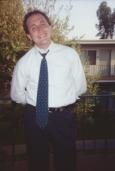
For a full, but boring, description of my professional life, click here for my Curriculum Vitae. For those interested in a slightly more engaging discussion of where I come from, keep reading and clicking. As you will discover, I have deep roots here in southern California and at The Beach. After graduating from CSULB with a degree in Political Science, I went on to law school and a brief legal career. While I enjoyed life in the law, my heart and soul were always in scholarship and teaching, so I went back to school and earned a Ph.D. in Political Science. When a position opened up here at CSULB, I was overjoyed to come back and teach in the same department where I got my start as a scholar. As a professor, an advisor, and a mentor, my biggest joy is helping other first-generation college students — especially those interested in law — become successful professionals who give back to their communities. I can’t imagine doing anything else!
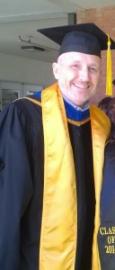
Deep Roots
Jason Whitehead — College Years
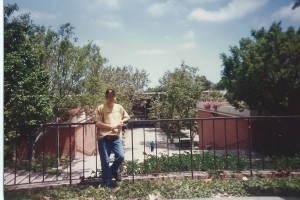
I was born and raised just up the 405 in the Carson/Wilmington area. I am a first-generation university student from a working-class family. So when it came time to pick a college, I needed one that was affordable but that would also provide me with the intellectual stimulation I would need to pursue law school or some other form of graduate school. So I came to the Beach! I earned my bachelor’s degree in political science from this very department in which I now serve as a professor. It was a great choice for me in so many ways — I competed on our nationally competitive debate team, I spent lots of late nights discussing political theory with fellow students, and I developed a passion for law that has remained with me to this day.
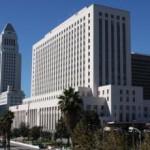
Jason Whitehead — Law School and Legal Career
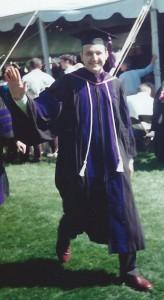
After graduating from CSULB, I went off to law school at Willamette University in Salem, Oregon, where I earned my J.D. with honors, thanks to all the great undergraduate training I got here at the Beach. While in law school, I worked at the Oregon Department of Justice’s Antitrust Unit, where I got some great experience working on cases like the multi-state lawsuits against the tobacco industry. After graduating law school, I passed the Oregon bar exam and had the great pleasure of serving for two years as a judicial clerk to a panel of judges on the Oregon Court of Appeals. During that time, I learned a lot about appellate procedure, and I was able to help research and draft judicial opinions in cases involving labor law, environmental law, and many other areas. After five years in Oregon, my wife and I decided to move back to southern California, where I worked for a while as a staff attorney for the U.S. District Court in Los Angeles. There, I got lots of experience working on habeas corpus cases involving state and federal prisoners appealing their criminal convictions based on the violation of a constitutional right, such as the right to effective assistance of counsel or the right to a fair trial.
Jason Whitehead — Grad School

During my time as a law student and as an attorney, I began writing and publishing some legal scholarship in the area of critical legal theory. This started me thinking again about an academic career (I had actually gone to law school with the idea that I could eventually become a law professor). So I eventually decided to turn legal scholarship from a hobby into a profession by earning a M.A. and then a Ph.D. in political science from the University of Southern California. My main academic specialties there were political theory, public law, and American politics. While I was finishing up my doctorate, I started teaching part-time, first at USC and then at various other local colleges, including LBCC, CSUN, and eventually here at CSULB. While coming back to the Beach part-time was great, I never thought I would be able to come back as a professor. But — as if by some grand design — that’s exactly what happened in 2007: a tenure-track position opened up at exactly the right time, I applied, and now here I am back at this wonderful university that gave me my start years ago.
Everyone needs heroes to inspire them and give them wisdom. Throughout my life, I have been blessed with lots of personal and intellectual heroes. Here is a small selection of my favorite intellectuals — people whose scholarship and writing have had the most influence on me:
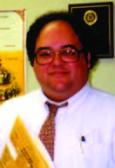
Edwin Roberts was my political theory professor when I was an undergraduate here at CSULB. He taught me about Critical Theory, especially Marcuse, Habermas, and the rest of the Frankfurt School, whose ideas formed the basis of most of my early research in Critical Legal Studies. Dr. Roberts also introduced me to postmodern thinkers like Foucault and Derrida, who he strongly disagreed with. Most of all, though, Dr. Roberts taught me that some ideas are worthy of great passion and energetic debate, intellectual qualities which characterized every aspect of his life until his untimely death. When I was asked to step in and teach his courses the semester after he passed away, it was one of the greatest honors of my life even though it was impossible to adequately fill his shoes.

Alasdair MacIntyre was one of the only philosophers outside of the Critical Theory tradition for whom Dr. Roberts had any respect. I first read his master work, After Virtue in Dr. Roberts’ Modern Political Theory course, and I was haunted by MacIntyre’s analysis of the maladies of a society whose moral debates — about things like sexual freedom, economic inequality, and other issues — are interminable because we have abandoned the idea that any one moral view can be better than another. From that book, and also from a later book, Whose Justice? Which Rationality?, I also learned about the theory of social practices, which had a huge effect on my later work on the rule of law.
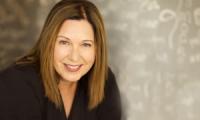
Judith Grant actually taught the very first college course I took here at CSULB — Introduction to Political Theory. But then she moved on to USC where — several years later — she became my main M.A. advisor. With her, I first read seriously many of Marx’s writings that were influential for the critical theorists, especially the Economic and Philosophical Manuscripts and the German Ideology. Reading these works on their own terms helped me see the weaknesses as well as the strengths of the Marxist project. More importantly for my later work, Dr. Grant gave me a wide and deep appreciation for the western canon of political theory, especially Enlightenment thinkers like Hobbes and Locke, but also post-Enlightenment thinkers like Nietzsche and Arendt. Of course, I also learned about feminism and sexual identity with Dr. Grant, reading thinkers like Shulamith Firestone, Judith Butler, and Jack Halberstam for the first time. As a teacher, I learned much from Dr. Grant about presenting ideas fairly, even — especially — those ideas with which one disagrees most.
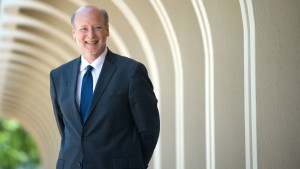
Howard Gillman was my Ph.D. dissertation advisor at USC. As a teacher, he showed me how to deal with students as fellow human beings worthy of my time and attention not only as people to be taught but as potential intellectual companions. As a scholar, Dr. Gillman showed me that it was possible to still study judges and courts as if the law still matters — something that most other political scientists doubt. Dr. Gillman also introduced me to neo-pragmatism through the writings of Richard Rorty and Stanley Fish, about whom we had some incredible conversations. His version of Historical Institutionalism — most evident in his master work, The Constitution Besieged — blended post-positivist theory with thorough qualitative research in a way that convinced me there was a place for people like me in the field.
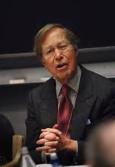
Ronald Dworkin was a legal philosopher I first encountered in law school but didn’t fully consider until I was studying with Dr. Gillman. His view — especially as laid out in Freedom’s Law and Law’s Empire — that legal principles are more important than legal rules and that judging is a thoroughly interpretive enterprise were hugely influential for my research on judicial values. Most importantly, I have always appreciated Dworkin’s insistence that the distinction between subjective judicial values and objective legal text — a distinction insisted on by both judicial conservatives and their radical left-wing critics — is a false dichotomy. Both are actually essential to good judging in a liberal democratic society.
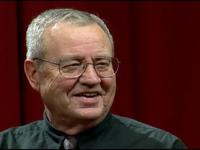
Dallas Willard was my philosophy professor when I was a Ph.D. student at USC, under his guidance I began to question the central tenets of Critical Theory. Dr. Willard taught me a lot about Husserl, Heidegger, and the rest of the phenomenological tradition, as well as about Gadamer and hermeneutics. These philosophical currents gave me a wider and deeper perspective on interpretation and the construction of meaning, both of which are at the center of the social practice of the rule of law. Above all, though, Dr. Willard taught me that thinking is not merely an ideological practice — it can be a reliable method of finding out the truth about reality, the world, our society, and ourselves. In particular, his later work on spirituality and epistemology played a significant role in convincing me that modern attempts to separate faith and knowledge are shortsighted at best and dangerous at worst.
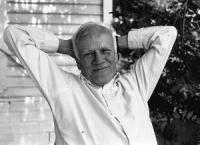
Walker Percy, was a novelist, essayist, and a philosopher of language whose writings I first encountered while I was a Ph.D. student searching for both individual and scholarly purpose after becoming disillusioned with Critical Theory. Percy’s novels — especially The Moviegoer, The Last Gentleman, and The Second Coming — all involve the loss of meaning and personhood in the modern and contemporary world that has lost its ability to understand itself. His philosophical essays about language and society — especially the essays collected in The Message in the Bottle and Signposts in a Strange Land — have been a constant reminder to me that our very thoughts and words are clues to who we really are: wayfarers looking for signs of home.
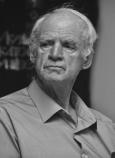
Charles Taylor is a social theorist whose work I first encountered in a footnote in an article by my mentor, Dr. Gillman, and in an essay assigned by Dr. Willard. As I was writing my first book, Taylor’s theory of the dialogical nature of human personhood and action and his notion of the social imaginary — described in several published essays — provided me with the necessary social diagnostic tools to replace those of Critical Theory. Later, as I was researching my second book, I found Taylor’s views of secularization and the problems with the modern moral order that accompanies it, which are outlined so well in his book A Secular Age, to be an accurate and persuasive diagnosis of our current situation vis a vis the place of religion and ethics in public life.
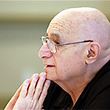
Peter Berger is one of those scholars whose ideas influenced me long before I ever read anything he wrote. The pioneering views he and his coauthor defended in The Social Construction of Reality were very influential for many of the neo-pragmatists I read with Dr. Gillman as well as for many of the postmodern theorists I had been reading since my undergraduate days. What I have most appreciated in Berger’s later work, though, is his insistence that understanding the social construction of reality does not absolve us of the responsibility to normatively evaluate our views of that reality. This insistence is nowhere more evident than in Berger’s work on the sociology of religion, including A Rumor of Angels and The Sacred Canopy. The more I continue to study the intersection of law and religion — as I have since knowing Dr. Willard — the more convinced I am that we cannot separate faith and knowledge — far from being enemies, they are both necessary for understanding the world and our place within it.
Jason Whitehead — My Research
Christianity and Law
My current research interests lie at the intersection of legal theory, judicial decision making, and Christian legal activism. Most recently, I published an article in the journal, Narrative Works, entitled “Dangerous Stories: Narrative Theory and Critique in a Post-Truth World.” It centers on the dilemma faced by narrative scholars, whose philosophical commitments prevent them from inquiring into objective truth but who nevertheless seek to challenge the lies and misinformation spread by Christian conservatives during the Trump era. The article reviews the strategies other narrative scholars in Critical Race Theory and Critical Feminist Theory have used to navigate this dilemma, and it argues that these strategies could also help scholars of Christian nationalism and other Trump-era movements achieve their goals without sacrificing intellectual rigor. Before that, I published an article in the Journal of Law & Religion, entitled “Tool or Lens? Worldview Theory and Christian Conservative Legal Activism.” The article traces the intellectual history of the concept of “worldview,” critiques the way this concept is employed by Christian conservative legal organizations and activists as a “tool” to achieve legal and social victories, and defends an alternative understanding of worldview as a socially constructed “lens.” I also published an article in the Tulsa Law Review, entitled “Faith, Reason, and Liberal Legal Neutrality,” critiquing the supposed value neutrality of liberal political and theory and defending a personalist understanding of religiously motivated legal claims in the secular legal arena.
I am working on a book tentatively titled, “The Law of the Lord: Mapping the Legal Worldview of Christian Conservatives.” As the title suggests, I am trying to describe and analyze the way Christian theological and social views translate into legal views on issues such as same-sex marriage, religious conscience exemptions, and abortion. This book will build on several papers I have presented at scholarly conferences over the past few years.
Judicial Philosophy

“The Law of the Lord” builds on the foundation I laid in my first book “Judging Judges: Values and the Rule of Law,” which described and analyzed the professional, social, and personal values that motivate judges when they interpret law. “Judging Judges” was the culmination of several years of research, including some papers presented at various academic conferences. In fact, my interest in these issues goes all the way back to my days in graduate school, where I studied political theory, public law, and American politics, with a special emphasis on post-positivist legal theory and New Institutionalist studies of judicial decision making.
Legal History
Before getting into the research for the above book, my scholarship focused on legal history — specifically, the motivations of claimaints bringing major constitutional cases and the public response to those cases. See the following links for a better idea what I was up to during this stage of my career: “Wallace v. Jaffree” in Mel Urofsky, Ed., The Public Debate Over Controversial Supreme Court Decisions, Washington, D.C.: Congressional Quarterly Press (2006) “Robert Mack Bell: The Ultimate Civil Rights Success Story,” in Mel Urofsky, Ed., One Hundred Americans Making Constitutional History. Washington D.C.: Congressional Quarterly Press (2004). “Ishmael Jaffree: A Passion for Non-Conformity,” in Mel Urofsky, Ed., One Hundred Americans Making Constitutional History. Washington D.C.: Congressional Quarterly Press (2004).
Critical Legal Theory
My earliest research — some of it published when I was a law student and an attorney — was greatly influenced by radical left-wing theories. I was especially interested in applying Frankfurt School critical theory to the law, and I was convinced that getting back to the roots of critical theory in this way could revive and enliven the Critical Legal Studies movement. See the following links for this scholarship: “Toward a Critical Theory of the Rule of Law: William E. Scheuerman’s ‘Between the Norm and the Exception,’” Oklahoma City University Law Review 26 (summer 2001): 663-91. “From Criticism to Critique: Preserving the Radical Potential of Critical Legal Studies Through a Reexamination of Frankfurt School Critical Theory,” Florida State University Law Review 26 (Spring 1999): 701-42. “The Labor Exemption From Antitrust as an Ideological Antinomy,” Willamette Law Review 32 (Fall 1996):
- KCAL News, discussing Donald Trump’s legal troubles and his 2024 presidential campaign (8/24/2023)
- KCAL News, discussing Donald Trump’s legal troubles and his 2024 presidential campaign (8/16/2023)
- KCAL/KCBS News, discussing the pending indictment of Donald Trump for actions related to January 6 (7/19/2023)
- KCAL/KCBS News, discussing the indictment of Donald Trump for misuse of classified documents (6/13/2023 — 11 AM)
- KCAL/KCBS News, discussing the indictment of Donald Trump for misuse of classified documents (6/13/2023 — 10:15 AM)
- KCAL/KCBS News, discussing the indictment of Donald Trump for misuse of classified documents (6/13/2023 — 8:15 AM)
- KCAL/KCBS News, discussing the indictment of Donald Trump for falsification of business records (3/31/2023)
- KCRA News (Sacramento), discussing President Biden’s 2023 State of the Union Address (2/8/2023)
- KCAL9 News, discussing the Supreme Court overturning Roe v. Wade (6/25/2022)
- KCBS News, previewing Judge Ketanji Brown Jackson’s Senate confirmation process (3/20/2022)
- KCBS News, previewing President Biden’s 2022 State of the Union Address (3/1/22 — 6:35 AM)
- KCBS News, previewing President Biden’s 2022 State of the Union Address (3/1/22 — 5:35 AM)
- KCBS News, reacting to President Biden’s address to the nation on the 1-year anniversary of January 6 (1/6/2022)
- KCBS News, discussing the 1-year anniversary of January 6 (1/6/2022)
- KCBS Radio, discussing the 1-year anniversary of January 6 (1/5/2022)
- KCBS News, discussing the Senate vacancy created by Kamala Harris’s Election as Vice-President (11/9/2020)
- Spectrum News, discussing the 2020 presidential election results (11/6/20)
- KTLA News, discussing President Trump’s COVID-19 diagnosis (10/2/2020)
- KTLA News, discussing the Supreme Court vacancy created by the passing of Justice Ginsburg (9/28/2020)
- KTLA News, discussing the 2020 Republican National Convention (8/26/2020)
- Spectrum News, discussing the 2020 Democratic National Convention (8/21/2020)
- KTLA News, discussing Kamala Harris’s selection as Joe Biden’s running mate (8/11/2020)
- KNBC News, discussing Kamala Harris’s selection as Joe Biden’s running mate (8/11/2020)
- KCBS News, discussing the Supreme Court’s ruling on DACA (6/17/2020)
- Marketplace (NPR Show), discussing the Supreme Court’s ruling on LGBTQ workplace protection (6/15/2020)
- Long Beach Post Live Chat, discussing the Supreme Court’s ruling on LGBTQ workplace protection (6/15/2020)
- KABC News, discussing the Supreme Court’s ruling on LGBTQ workplace protection (6/15/2020)
- KTLA Morning News, discussing the arguments in the Trump impeachment trial (1/30/20)
- KTLA Morning News, discussing the opening statements in the Trump impeachment trial (1/22/20)
- KCBS News, discussing the DACA case, recently argued before the Supreme Court (11/12/19)
- KCAL 9 News, discussing the Democratic primary debate (10/16/2019)
- KTLA Morning News, discussing the Supreme Court’s decision on border wall funding (7/27/2019)
Spectrum News Beat 1, discussing the Democratic primary debate (6/27/2019):
- Audrey Moore’s C-SPAN Studentcam Mini-Documentary: “A Forgotten Amendment” (2018)
- Long Beach League of Women Voters, Constitution Day Panel w/Dr. Jared Perkins (Sep. 2017):
- Beach TV’s “In Conversation,” Panel Discussion About the 2016 Presidential Election (w/Dr. Charles Mahoney, Dr. Kevin Wallsten, and Dr. Teresa Wright) (Jan. 2016)
- KDHR’s Toro Talk Live — Interview About my Book, “Judging Judges” (April 2015)
It’s always fun to get the chance to talk about political and legal topics that are in the news, or about my research, outside of the traditional classroom setting. Here are some talks and lectures I’ve done over the years (more info available upon request):.
- Constitution Day 2022, Panel Discussion on Recent Developments at the U.S. Supreme Court, Sponsored by the CSULB Center for First Amendment Studies, September 17, 2022, Long Beach, CA.
- “Critical Race Theory” and “Gender and Sexuality,” Winds of Change 2022 Conference, Sponsored by Faculty Bridges Faculty Ministry, March 5, 2022, Seal Beach, CA
- “Faces of Power: Christian Responses to Power Dynamics in Academia” — keynote talk given at the annual Winds of Change conference, sponsored by Faculty Bridges, February 29, 2020, Seal Beach, CA.
- “A Form of Godliness? The Structure and Substance of the Christian Legal Worldview” — invited presentation given at the Symposium on Religion and Public Life, sponsored by the Henry Institute for the Study of Christianity and Politics, April 25-27, 2019, Calvin College, Grand Rapids, MI.
- “Judicial Values: The Heart of the Rule of Law,” Plenary Address given at the Oregon Circuit Judges Association Annual Conference, Sun River, OR (April 2018)
- “Judges and the Constitution,” Remarks at the CSULB Center for First Amendment Studies Constitution Day Panel (Sept. 2016)
- “Guns, Immigration, and Health Care: How the Supreme Court Could Affect the 2016 Presidential Election” — Talk Given to the CSULB Association of Emeriti Faculty (March 2016)
- Invocation at the Concluding Session of the CSULB ASI Senate (April 2015)
- “Constitutional Conflict Over Religion in America,” Talk Given at Grace First Presbyterian Church in Long Beach (March 2015)
- “Values and the Rule of Law From the Inside Out,” Talk Given to the Faculty of Willamette University, College of Law, in Salem, Oregon (March 2015)
- “Judging Judges: Values and the Rule of Law,” Talk Sponsored by the CSULB Political Science Graduate Student Association (November 2014)
- “Faith and the First Amendment,” Talk Given at First United Methodist Church in Torrance, CA (November 2003)
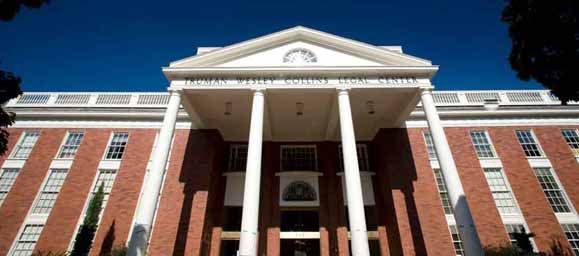
There are so many things to think about, like:
- Is a legal career really right for me?
- What kinds of students are law schools looking for?
- What is law school like?
- What steps do I need to take to get into a good law school?
- How will I pay for law school once I get accepted?
And many more questions you don’t even know you should ask.
So here are some things that can help:
Follow the CSULB Prelaw Advising LinkedIn Page.
Regularly updated information from your Prelaw Advisor about news, events and resources students and alumni interested in law school.
Take the Prelaw Preparation Course
To help you get the answers to all your law school related questions, we have an innovative approach here at CSULB. It’s a sequence of 5-week, 1-unit credit/no credit courses called the Law School Readiness sequence. These courses are open to students of any major and they are offered every semester. You can take all 3 in one semester, take them all in different semesters, or just take one or two. The first course, C/LA 394A: What Does Law School Entail? covers legal careers and what law school is like, including some mock law school classes to get you ready. The second course, C/LA 394B: Be a Successful Applicant, deals with all the details of the application process, including writing a personal statement, getting letters of recommendation, etc. And the third and final course, C/LA 394C: Admissions & Financial Aid, covers law school admissions and financial aid decisions, as well as how to successfully negotiating with law schools. The sequence of courses is offered by the College of Liberal Arts and you will find them listed in the Schedule of Classes under “L” for “Liberal Arts.”
Make a Prelaw Advising Appointment
The Prelaw Preparation course is the best, most comprehensive, way to get the information you need for law school. If, for some reason, the course doesn’t work for you, you can also set up an appointment to speak with the Prelaw Advisor about the details of your particular situation.
Check out Some Prelaw Resources:
Wherever you are in the process of thinking about or applying to law school, check out the following helpful resources:
List of Books About Law School and Legal Careers
Frequently Asked Questions About Law School and Legal Careers
The Legal Profession:
The Realities of Law School:
- Inside Law School
- How to Survive the First Year of Law School
- What is the Timetable for Legal Recruitment
Becoming a Successful Law School Applicant:
- Preparing for Law School
- How Law Schools Determine Whom to Admit
- About the LSAT
- Law Schools Accepting the GRE
- Summer Prelaw Programs for Undergraduates
Deciding Where to Apply:
- What Questions Should I Ask?
- LSAC Official Guide to ABA-Approved Law Schools
- U.S. News & World Report Law School Rankings
- The Law School Transparency Project
- Accelerated Admissions and Degree Programs
- Law School Graduate Job Placement Data
How to Apply to Law School:
- Checklist for the Law School Application Process
- The LSAC Credential Assembly Service
- Letters of Recommendation
- Writing a Personal Statement
- Writing a Law School Resume
- Writing an Addendum or Other Written Supplement
Law School Financial Aid:
Legal Studies Program & Certificate
The Legal Studies program is open to students of any major who are interested in studying the development, logic, interpretation, perception, and application of law. As part of the program, you will take law-related courses from different departments throughout the university. Upon graduating, you will be awarded a “Legal Studies Certificate” in addition to your Bachelor’s degree.
Program Goals
Earning a Legal Studies Certificate will show that you have in-depth knowledge of the legal system. It also will show that you understand law from a variety of perspectives. This could provide a valuable background for a variety of future pursuits, including: graduate school, social work, community and government service, law school, law enforcement, and many others.
Program Requirements
Legal Studies Certificate Requirements Worksheet
To earn the Legal Studies Certificate, you must complete a total of 8 courses (24 units). You can double-count these courses toward major, minor, general education or other academic requirements. However, no more than 4 courses (12 units) from your major may be used toward the Certificate. The courses must be distributed as follows:
You must choose 1 course (3 units) from the following list of “Foundation” courses:
- CRJU 350 (Constitutional Criminal Procedure)
- HIST 308 (Law and Civilization)
- HIST 479 (US Constitution: Origins & Early Development)
- PHIL 352I (Philosophy of Law)
- POSC 311 (Constitutional Law: Powers)
- POSC 312 (Constitutional Law: Rights)
You may choose the remaining 7 courses (21 units) from the following list of “Breadth” courses. These courses should be chosen in consultation with the program adviser, and they must be taken from three different departments.
- ASAM 346. Asian Americans and the Law
- AFRS 332. Civil Rights and the Law
- AIS 485. American Indians and the Law
- BLAW 220. Intro. to Law and Business Transactions
- BLAW 320. Legal and Regulatory Environment of Business
- CHLS 362. Latinas/os, Law, and Public Policy
- CLSC 410I. Law and Literature in the Classical World
- COMM 441. Issues in Freedom of Communication
- CRJU 301. Criminal Courts and Judicial Processes
- CRJU 340. Substantive Criminal Law
- CRJU 350. Constitutional Criminal Procedure
- CRJU 420. Legal Aspects of Corrections
- CRJU 430. Criminal Evidence and Trials
- ECON 355. Law and Economics
- HIST 308. Law and Civilization
- HIST 479. U.S. Constitution: Origins and Early Development
- HIST 480. Law and Fundamental Rights in American History
- HIST 489. Selected Topics in Legal History of the United States
- JOUR 430. Law of Mass Communications
- PHIL 352. Philosophy of Law
- PHIL 451. Liberty and Justice: Race, Ethnicity, and Gender in American Law
- POSC 311. Constitutional Law: Power
- POSC 312. Constitutional Law: Rights
- POSC 376. International Law
- POSC 412. Law and Social Change
- POSC 414. Jurisprudence
- PSY 495. Psychology and the Law
- SOC 342. Critical Criminology
- SW 350. Law, Court Decisions, and Policy Practice
- WGSS 308. Women and the Law
In place of 1 of the above “Breadth” courses, you may choose to write a Project Paper.
The paper may consist of original or secondary research related to law or the legal system broadly speaking. The paper may only be written during your senior year as part of a 3-unit independent study or directed research course supervised by a faculty member participating in the program. At the beginning of the semester in which the paper is written, you must submit a copy of the independent study or directed research agreement, signed by the supervising professor, to the Legal Studies program director. At the end of the semester in which the paper is written, you must submit a copy of the completed paper to the program director.
For any questions, please email the Legal Studies Program Director, Dr. Jason Whitehead
As you might have guessed from my professional and research background, most of the courses I teach having something to do with law, courts, or legal theory. See the following for my most recent syllabi:
- Graduate Courses:
- Undergraduate Courses:




